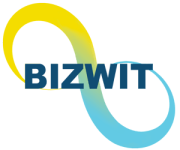Global Battery Electrolyte Market is valued at approximately USD 7.63 billion in 2022 and is anticipated to grow with a healthy growth rate of more than 17.1% over the forecast period 2023-2030. Battery electrolyte refers to the conductive solution or medium that facilitates the movement of ions between the electrodes in a battery. It is an essential part of many different kinds of batteries, including lead-acid and lithium-ion batteries. The performance, stability, and general effectiveness of the battery are fundamentally influenced by the electrolyte. Battery electrolyte is essentially a solution of water and sulfuric acid. An anode, cathode, and electrolyte are the three main parts of a battery. The Battery Electrolyte market is expanding because of factors such as the rising consumer acceptance of smart gadgets and other electronics, and rising interest in renewable energy storage.
In addition, the primary driver for the battery electrolyte industry is reportedly a rise in demand for electric vehicles as a means of reducing carbon footprint. The India Energy Storage Alliance (IESA) estimates that the Indian EV sector is expected to grow at a CAGR of 36%. Also, NITI Aayog anticipates that sales of electric cars would have reached 70% for all commercial vehicles, 30% for private automobiles, 40% for buses, and 80% for two- and three-wheelers by 2030. Moreover, as per the International Energy Agency (IEA), in 2020, the number of electric vehicles were sold in United States was 295000 and the number increased significantly and reached 631000 in 2021. As a result, the rising demand for the EVs is anticipated to propel the market growth. EVs experienced strong growth in the global market, which was aided by the government’s adoption of beneficial laws and initiatives. The primary factors influencing the growth of the battery electrolyte market are the quick expansion of the automotive sector, high demand from the battery replacement segment, and rising share of alternative energy sources in the energy mix. However, the industry’s growth is hampered by the lack of effective recycling methods for battery goods and by the inadequate infrastructure for charging, throughout the forecast period of 2023-2030.
The key regions considered for the Global Battery Electrolyte Market study include Asia Pacific, North America, Europe, Latin America, and Middle East & Africa. Asia Pacific dominated the market in 2022 owing to the factors such as increasing demand from numerous end-use sectors, including electric vehicles, energy storage, and portable consumer electronics. Additionally, the growing number of telecom towers, rising awareness of renewable energy production, increased demand for industrial storage, and declining solar energy costs, are the key factors that are driving up the demand. Latin America is expected to grow significantly during the forecast period, due to the expansion of the automotive industry in Brazil and Mexico as a result of the US-Mexico NAFTA. Also, increased electrification efforts in developing nations, as well as rising auto sales are the key factors that are contributing to the growth of the regional market during the estimated period.
Major market players included in this report are:
Advanced Electrolyte Technologies
Toray Industries Inc.
Pohang Iron and Steel Company (POSCO)
Mitsubishi Chemical Holdings
Hitachi Chemical
American Elements
Daikin America Inc.
Shenzhen Capchem Technology Co., Ltd
Ohara Corporation
Nohms Technologies Inc.
Recent Developments in the Market:
Ø In April 2021, Hitachi, Ltd. created an organic solid electrolyte with lower volatility and greater chemical resistance utilizing materials informatics technology, and successfully constructed a long-life LIB prototype utilizing this electrolyte.
Ø In November 2021, GS Yuasa International Ltd. released a new product that focused on improving the primary technology utilized in battery electrolytes. The company improved ionic conductivity and strengthened water resistance by creating solid electrolytes made of sulfides that contain nitrogen.
Ø In April 2020, Mitsubishi Chemical Corporation and UBE Industries, Ltd. announced that the companies create a joint venture firm through a joint incorporation-type split in order to handle the electrolyte business for lithium-ion rechargeable batteries. The aim of this initiative is to meeting the world’s rising demand for battery materials.
Global Battery Electrolyte Market Report Scope:
ü Historical Data – 2020 – 2021
ü Base Year for Estimation – 2022
ü Forecast period – 2023-2030
ü Report Coverage – Revenue forecast, Company Ranking, Competitive Landscape, Growth factors, and Trends
ü Segments Covered – Battery Type, Electrolyte Type, End User, Region
ü Regional Scope – North America; Europe; Asia Pacific; Latin America; Middle East & Africa
ü Customization Scope – Free report customization (equivalent up to 8 analyst’s working hours) with purchase. Addition or alteration to country, regional & segment scope*
The objective of the study is to define market sizes of different segments & countries in recent years and to forecast the values to the coming years. The report is designed to incorporate both qualitative and quantitative aspects of the industry within countries involved in the study.
The report also caters detailed information about the crucial aspects such as driving factors & challenges which will define the future growth of the market. Additionally, it also incorporates potential opportunities in micro markets for stakeholders to invest along with the detailed analysis of competitive landscape and product offerings of key players. The detailed segments and sub-segment of the market are explained below:
By Battery Type:
Lead Acid
Lithium-ion
By Electrolyte Type:
Liquid Electrolyte
Solid Electrolyte
Gel Electrolyte
By End User:
Electric Vehicle
Consumer Electronics
Energy Storage
Others
By Region:
North America
U.S.
Canada
Europe
UK
Germany
France
Spain
Italy
ROE
Asia Pacific
China
India
Japan
Australia
South Korea
RoAPAC
Latin America
Brazil
Mexico
Middle East & Africa
Saudi Arabia
South Africa
Rest of Middle East & Africa



